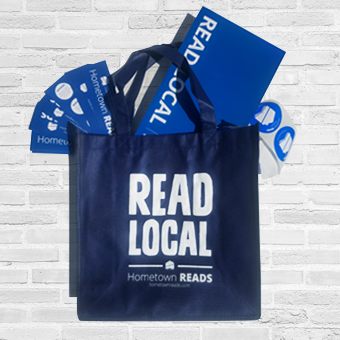Utilizing a Comic Book Convention as a Marketing Tool
So much of what people share with regards to book marketing anymore focuses on the digital aspect of it. Websites, a strong social media presence, how to reach people whether they’re on their laptops, tablets, or smartphones…
And while that’s important – we are, after all, in the digital age – I still feel like talking to someone face-to-face about your books can be your best marketing tool. That can be a problem for some of us; if you’re like me, you’re not the outgoing type. Some of us are introverts. Others of us have varying degrees of social anxiety, making face-to-face interactions difficult.
But I’ve found an outlet in which they are crucial: the comic book convention.
Technically, this can extend to any sort of convention in which authors are welcome. Comic book conventions, sci-fi meetups, any large gathering of like-minded individuals that feature a space for artists, authors, and other vendors to hawk their wares are a tremendous opportunity for self- and independently-published authors, both short- and long-term.
I’ve attended two conventions in my almost two full years as a self-published author: Hampton Comicon this past October and Tidewater Comicon last month. Both conventions are within short driving distance of my house, so the relative lack of travel costs made them incredibly easy to plan for and attend.
Make no mistake: these events are investments. You will often have to pay for a table. You’ll have to pay for the product you’re selling (in my case, author copies of my books). Then there are costs such as travel, food, electrical (a lot of venues will offer you an outlet… for a price); before you know it, the bill can get quite steep.
So let me be straight: your chances of turning a profit are slim. And just because you killed it at one convention does not mean you will experience the same thing every time.
I sold out my allotment at Hampton Comicon and tripled my investment. That was a really good convention. I lost money at Tidewater Comicon, but I wasn’t alone in that. The most important thing to remember is that conventions offer benefits aside from instant sales.
Take my books, for example. My first three novels are part of a mystery/sci-fi series in which the main character is a costumed vigilante. It’s as close to being a comic book as a story can be without actually being a comic book, so displaying my books at a comic book convention works because the target audience is right there.
Always keep that in mind; if you’re a strict romance writer, a sci-fi convention might not be the best place to set up shop. But if your romance is chock full of cyborgs and takes place on a faraway planet… now we’re getting somewhere.
People like to have conversations at these conventions. Sometimes, those conversations lead to sales. Sometimes, they don’t. But don’t push; if someone at your table wants to know more about your work, they will ask. Then you can go into your pitch and boast about your books to your heart’s content.
Even if they don’t buy your book(s), make sure they walk away with something. I always have bookmarks and business cards handy, both of which direct people to my website, my social media outlets, and my Amazon page (you will run into people who will prefer to read on their Kindles as opposed to a physical book).
Think about this: say, over the course of two days, 500 people stop by your table and snatch up a card or a bookmark or a flyer. If 100 of them visit your Amazon page or your website, that’s more traffic than you had otherwise. And even if only 50 of them actually buy something… well, that’s 50 more sales than you had before.
This is a long game as much as it is a case for instant gratification. You’re selling yourself as much as you’re selling your books.
You also never know who you’ll meet. Fellow writers, amazing artists… maybe even a TV agent or someone looking for a book to option for a film (be wary of these people, but that doesn’t mean you can’t talk to them). At Tidewater, I met a guy who used to write for The Tick comic book. We exchanged contact information and gave each other a copy of our work. I also met an artist who was dying to do more superhero work, so I might team up with him down the road for a graphic novel.
These opportunities don’t happen if I don’t go.
The moral of the story, as it were, is that events such as comic book conventions can be as effective a marketing tool for your books as any blog post or tweet blast. Sometimes, being face-to-face is what we need to get over the hump, but even then, it helps to keep our long-term goals in mind.








What People Are Saying
Where to you find a listing of the comicons? I’d love to attend some but only find out about them after they’ve happened.
I agree with you, J.D. Face-to-face promotion always works best. I also learned recently that taking photos of people who come to your events to buy your books and posting those photos on FB let’s your readers know that you appreciate them.